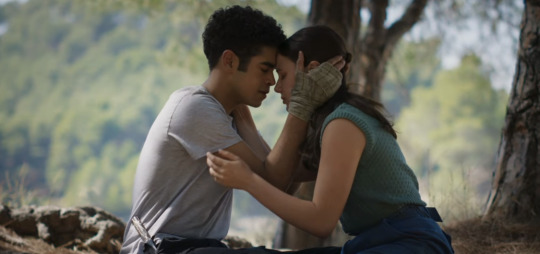Note: If you wish to receive, via e-mail, (1) my weekly newsletter or (2) daily copies of these posts, notify me at rrbates1951 at gmail dot com and I will send it/them to you. I promise not to share your e-mail address with anyone. To unsubscribe, send me a follow-up email.
Spiritual Sunday
“I will show you fear in a handful of dust,” T. S. Eliot memorably wrote in his masterpiece about spiritual desolation, and dust so far has been the theme of my Lent. Our rector Rob Lamborn preached about dust in his Ash Wednesday service before marking us with the ashes of last year’s Palm Sunday fronds, and in our Lenten reading. I was delighted to see author Jane Shaw, in A Practical Christianity: Meditations for the Season of Lent, leans heavily on Philip Pullman’s His Dark Materials trilogy in addressing “The Problem of Dust.”
The biblical metaphor of dust, Shaw writes,
helpfully speaks to our beginnings and our endings, to our place in the world, to the life in Christ that Christians share, and to the practical means by which we may live our lives. In the second of the creation stories in which God makes humankind, it is said: “the Lord God formed man from the dust of the ground” (Genesis 2:7). Later in Genesis, God reminds human beings of their mortality in the words, “you are dust, and to dust you shall return” (Genesis 3:19).
Shaw then quotes philosopher Alain de Botton that, as the stuff from which we are all created, “Dust is that most democratic of substances.” Christianity, Shaw notes,
forces us to realize, finally realize, that for all our achievements and riches, human beings are created equal, from the same substance, and, more than that, in the image and likeness of God.
Shaw also quotes the passage from Ezekiel about the valley of dry bones, which is often read at Easter. Then she applies Pullman’s novel, in which “dust drives the narrative and governs everything.” Pullman’s dust, she says
consists of particles from another world that cause knowledge—or, in theological language, original sin. The overriding intellectual quest, and the central battles in the book, are about discovering the origin and meaning of dust.
Lyra and Will, the two protagonists of the series, are two teenagers grappling with the challenges of life, including sexuality. There’s a battle in the book about how to interpret the forbidden fruit in the Genesis story. As Lyra and Will see it, they must taste of that fruit if they are to grow into their full humanity. In Shaw’s framing, they “learn that the moral life, the good life, is not lived in a dust-free vacuum but is rather lived out in the quest, in the journey and in the choices that one makes in a complex world filled with pain and suffering as well as joy and hope.”
This goes against the teaching of those in the novel who believe that “the fall” was a tragedy rather than a necessary stage of growth. Pullman is contending that it was good that Eva ate the fruit (in the third book we see Lyra and Will eating such fruit) and that it is good that people have sex (as Lyra and Will do). If the church disagrees, then the church is a block to humans achieving their potential.
In fact, Lyra’s mother, representing one wing of the church, wants to keep children innocent—which is to say, prevent them from growing up. She has a particularly fiendish way of doing so (you can check out a previous post on the book to see how). The trilogy is a coming-of-age drama which functions, at the same time, as a rejection of sex-obsessed and guilt-obsessed Christianity.
If we cannot eradicate dust and sin, Shaw continues, then we must find “some way to grapple with our faults, shake off the effects and continue on the journey.” The answer is not longing for an impossible innocence—or for an escape from the world—but rather “reckoning with the reality of dust—coming to accept our created nature, including the flaws.” This in turn provides the foundation for moving towards and embracing life in all its fullness. “Our of our dust,” she writes, “through the clouds of dust that we shake off,” comes new life.”
Invoking again Ezekiel’s image of dry bones, she concludes the chapter on dust as follows:
What, then, does Christianity bring to the quest for a moral life, the struggle to live with our dustiness? The promise that we are created of dust and in the image of God, and that we will be accompanied in our journey by the love of God, a love greater than our sin, greater than our limits.


